Benjamin Netanyahu has confirmed that Israel has begun a new phase in the war against Hamas, launching a ground operation in Gaza and intensifying airstrikes.
“Our soldiers have been deployed in all parts of the Gaza Strip.”
Thus, Israeli Prime Minister Benjamin Netanyahu confirmed on Saturday (28/10) that his country has begun a new phase of the war against Hamas, launching a ground operation and intensifying air strikes against Gaza.
Chaos has reigned in the region since the Israeli army began its new offensive between Friday night and Saturday morning. Hundreds of thousands of people have had to flee their homes, while the total death toll now exceeds 8,000, according to the local Ministry of Health, administered by Hamas.
The latest attacks are described as the most intense since the war began on October 7, when a Hamas attack killed more than 1,400 people and kidnapped 200 people in Israel.
Hundreds of Palestinians have died in the last few hours, according to Gaza authorities. Furthermore, the bombings leave a trail of destroyed buildings and thousands of damaged homes.
Even in the south, where most of the population took refuge after Israel ordered them to abandon their homes, attacks have been reported, albeit on a smaller scale.
“It will be a long and difficult war,” Netanyahu said in a televised speech on Saturday.
At the same time, Defense Minister Yoav Gallant assured that the country is in the “next phase of the war”, in what is expected to be a long-term land incursion.
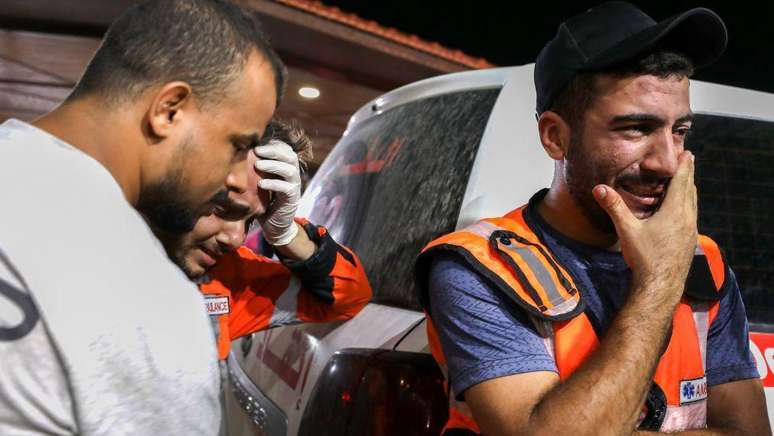
Gaza remained without internal and external telecommunications on Saturday, making it difficult to know what was happening in the Palestinian territory.
By Sunday morning (29/10) internet and mobile phone services had been partially restored.
Palestinian Communications Minister Ishaq Sider said efforts were being made to restore the communications system in Gaza.
1. What does Israel say about its offensive?
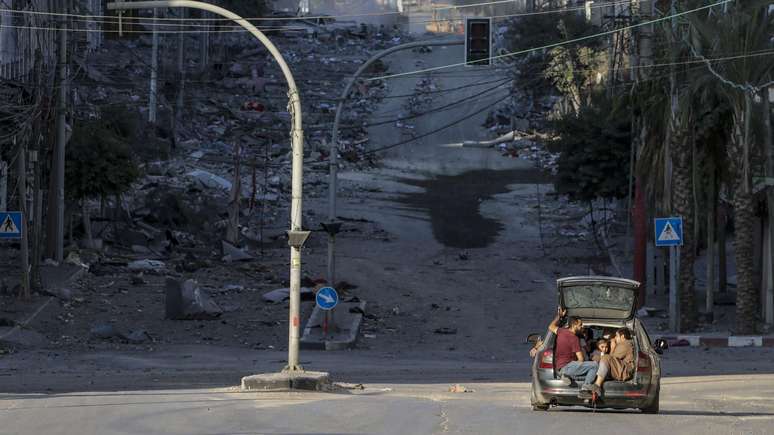
In his speech on Saturday, after meeting with family members of some of the hostages held by Hamas in Gaza, Benjamin Netanyahu said his main goal is to defeat Hamas and free the captives.
Netanyahu said Israeli soldiers and commanders “have been sent to all parts of the Gaza Strip” and that the ongoing ground operation is the second phase of the war against Hamas, with “very clear objectives.”
He said Israeli ground forces had entered what he called “that stronghold of evil,” referring to Gaza, to “dismantle” Hamas and bring the hostages home, and said the battle would be “long and difficult “.
Netanyahu added that the army was taking precautions to protect civilians and accused Hamas of committing crimes against humanity by “using its people as human shields.”
Netanyahu put the battle in a broader context and said it will be a 3,000-year war for the survival of the Jewish people.
He described the intervention in Gaza as Israel’s “second war of independence”.
“We will fight and we will not give up. We will not retreat. [Continuaremos] on the surface and underground,” he continued.
Defense Minister Yoav Gallant, referring to the attack that began Friday, said “the more we hit them [o Hamas]we know they will be willing to reach some sort of agreement and we will be able to bring our beloved hostages home.”
According to BBC diplomatic correspondent Paul Adams, Gallant’s words reflect the Israeli army’s strategy, which is based on three phases.
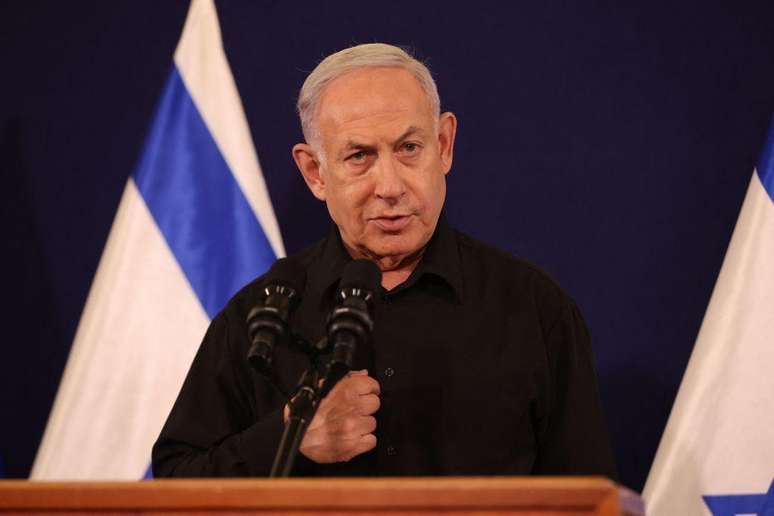
A week ago, Gallant told a parliamentary committee in his country that this second phase aimed to “eliminate pockets of resistance” in Hamas.
The first phase would consist of destroying the group’s infrastructure, while the third would consist of “freeing Israel from its responsibilities” in the Gaza Strip and “establishing new security measures for Israeli citizens”.
This Saturday it was also reported that Hamas has offered to exchange the more than 220 hostages it holds in Gaza for Palestinian prisoners held in Israeli prisons.
Netanyahu said the matter had been discussed with Israel’s war cabinet, but declined to provide details.
2. What is the situation in Gaza?
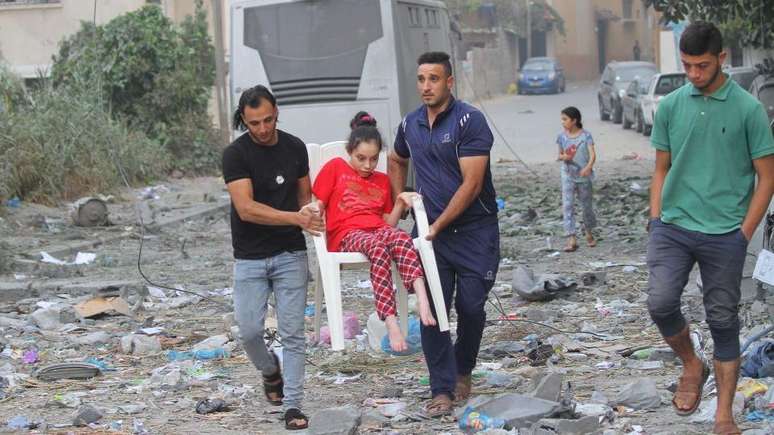
Huge explosions lit up the sky on Saturday morning as the Israeli army said it was “operating forcefully in all dimensions to achieve war objectives”, with “ground forces… expanding their operations”.
According to Palestinian authorities, hundreds of buildings were destroyed by air and artillery attacks.
But the Israeli military reported that its fighters hit 150 underground targets, including tunnels and other infrastructure.
Israeli tanks and troops also crossed the border and clashed with Hamas fighters.
The group’s military wing said it was fighting Israeli troops in the northeastern city of Beit Hanoun and the central Bureij region. Hamas says it has also launched rocket attacks on Israel.
On Saturday morning, Rushdi Abu Alouf, a BBC journalist based in the southern Gaza town of Khan Younis, described “scenes of complete chaos” at the scene.
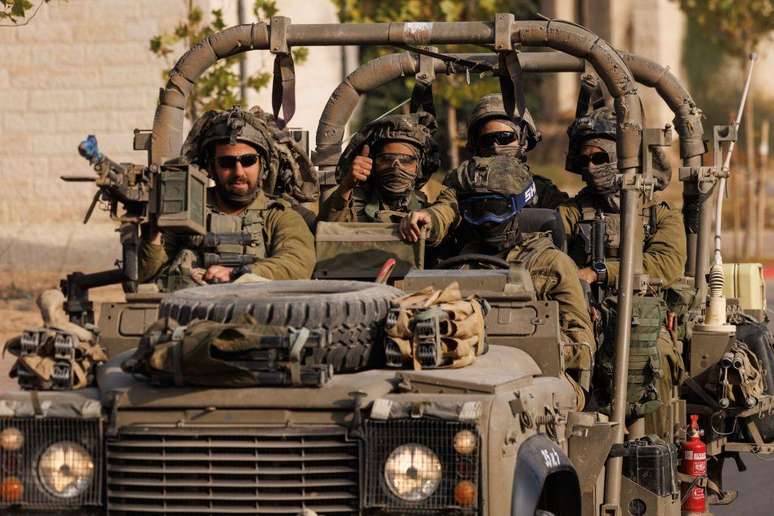
The journalist said the bombing in the north was on a scale never seen before.
He added that there have been fewer attacks in the southern areas of the Strip, but fear has gripped hundreds of thousands of people who have taken refuge there.
In turn, photographer Shehab Younis published a video on Instagram in which we see a seriously injured man being hastily taken away from a building to be transported in the back of a truck, in the absence of ambulances.
Younis told the BBC in a voice message that the situation was “catastrophic” and that people were unable to contact emergency services due to connectivity problems.
William Schomburg, head of the International Committee of the Red Cross subdelegation in Gaza, said hospitals were working 24 hours a day to care for victims.
“I was able to visit several hospitals, including Al-Quds Hospital, and the scenes are difficult to describe,” he said.
The United Nations Palestinian refugee agency (UNRWA), which provides assistance to more than 600,000 of the 1.4 million people who have fled their homes, said it had lost most contact with its teams during what he described as “the worst and most intense night” of the bombings.
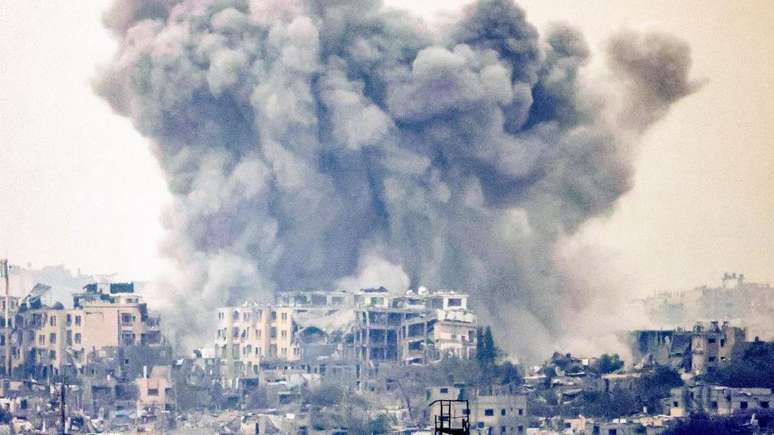
3. What was the reaction to the escalation of the conflict?
United Nations (UN) Secretary-General António Guterres said he was surprised by the escalation of the conflict, especially after growing international calls for a ceasefire in the face of the need for humanitarian aid for Gaza.
“In recent days I have been encouraged by what appears to be a growing consensus in the international community (…) on the need for at least a humanitarian pause in the fighting,” Guterres said in a statement on Saturday.
“Unfortunately, instead of respite, I was surprised by an unprecedented escalation of bombings and their devastating effects, which undermine the above-mentioned humanitarian objectives,” he added.
The UN on Friday approved a resolution calling for a “humanitarian truce”, presented by Jordan on behalf of Arab countries and which received 120 votes in favour, including Brazil and countries such as France and Belgium, 14 against and 45 abstentions.
Israel vehemently rejected the proposal.
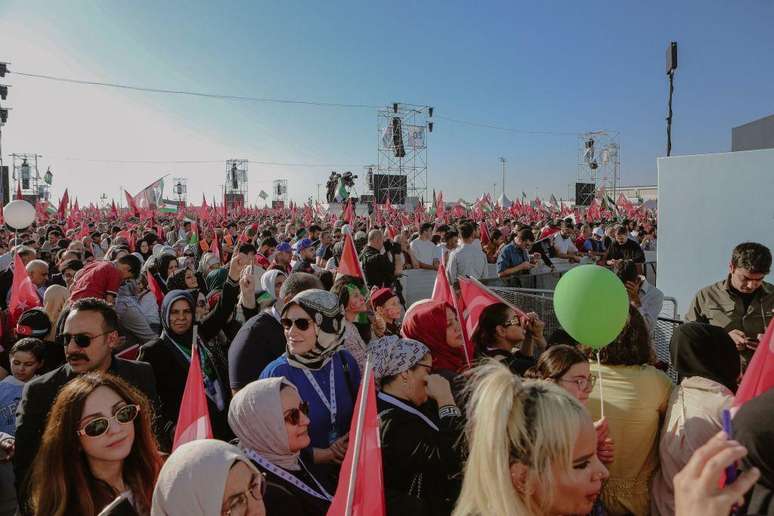
The International Committee of the Red Cross also called for an end to Israeli attacks and the release of hostages in Gaza.
“Two million civilians remained trapped in Gaza with nowhere to go,” the organization said. This is a “catastrophic failure that the world should not tolerate,” his statement continued.
“The absolute priority is the preservation of life, and this means allowing the continued delivery of humanitarian aid and access to humanitarian agencies,” he tells the agency in an unusual statement.
The committee, guardian of the Geneva Conventions, rarely speaks publicly on the progress of a war and generally opts for private communications with those involved.
Hundreds of thousands of people gathered in cities around the world on Saturday to call for a ceasefire.
There were protests in places such as London, Paris, Rome, Copenhagen and Baghdad.
In Istanbul, Turkey, President Recep Tayyip Erdoğan addressed hundreds of thousands of protesters and said Israel was committing “war crimes.”
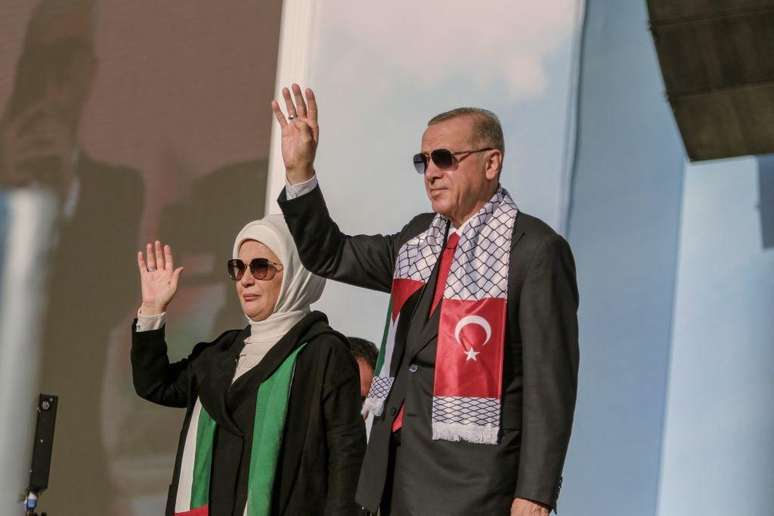
The president also criticized the leaders of Western powers for not intervening to stop hostilities.
Without naming the Turkish president, Netanyahu called those who accuse his army of committing war crimes “hypocrites”.
“We are the most moral army in the world,” he assured.
Israel decided to withdraw its diplomats from Turkey on Saturday afternoon.
Source: Terra
Rose James is a Gossipify movie and series reviewer known for her in-depth analysis and unique perspective on the latest releases. With a background in film studies, she provides engaging and informative reviews, and keeps readers up to date with industry trends and emerging talents.

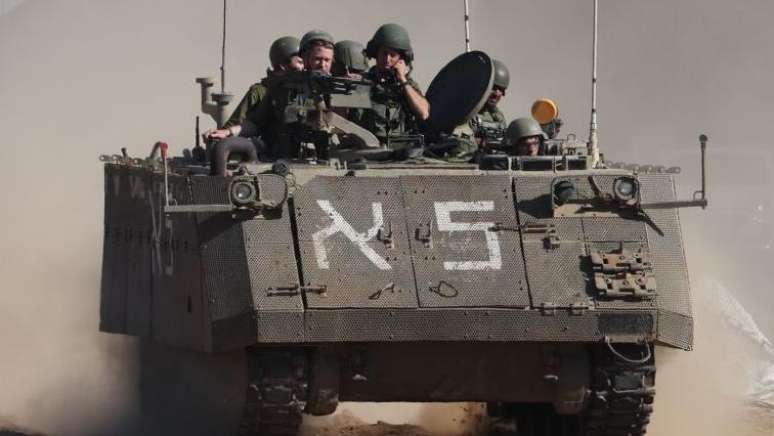


![Such a wonderful sun in advance: Summary of the episode on Tuesday, August 26, 2025 [SPOILERS] Such a wonderful sun in advance: Summary of the episode on Tuesday, August 26, 2025 [SPOILERS]](https://fr.web.img4.acsta.net/img/39/43/3943c500ecab894cfb0afb103e549512.jpg)

